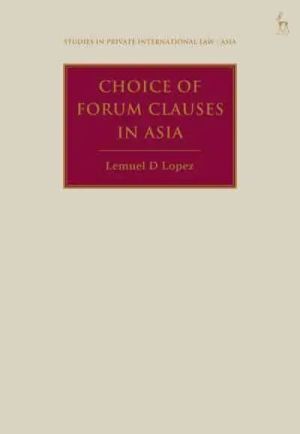
This book compares and explains the approaches taken by Asian courts when choice of forum clauses in international commercial contracts are challenged in litigation. The book analyses key common law jurisdictions (Singapore, Hong Kong, and Malaysia), civil law jurisdictions (China, Japan, and Indonesia), and hybrid jurisdictions (the Philippines).
With Asia's ascent in cross-border trade and investments and the increase in cross-border litigation, understanding the approaches of Asian courts to choice of forum clauses in international commercial contracts becomes a greater necessity. Employing a comparative law method, the book identifies and explains the relief and remedies used by Asian courts in enforcing choice of forum clauses. It also articulates how Asian courts differentiate choice of forum clauses from arbitration agreements, and how choice of forum clauses relate with other contractual provisions.
Furthermore, the book investigates the factors courts consider in resolving key choice of forum clause issues (ie, enforceability; specific relief to be granted; existence, validity, interpretation of choice of forum clauses; role of mandatory rules, public policy, and international interests) and explores the prospects for future development of the law in Asia.
Notably, the book not only highlights the unique approaches used by the Asian courts, but also emphasises the differences and similarities in the approaches between the common law, civil law, and hybrid jurisdictions.